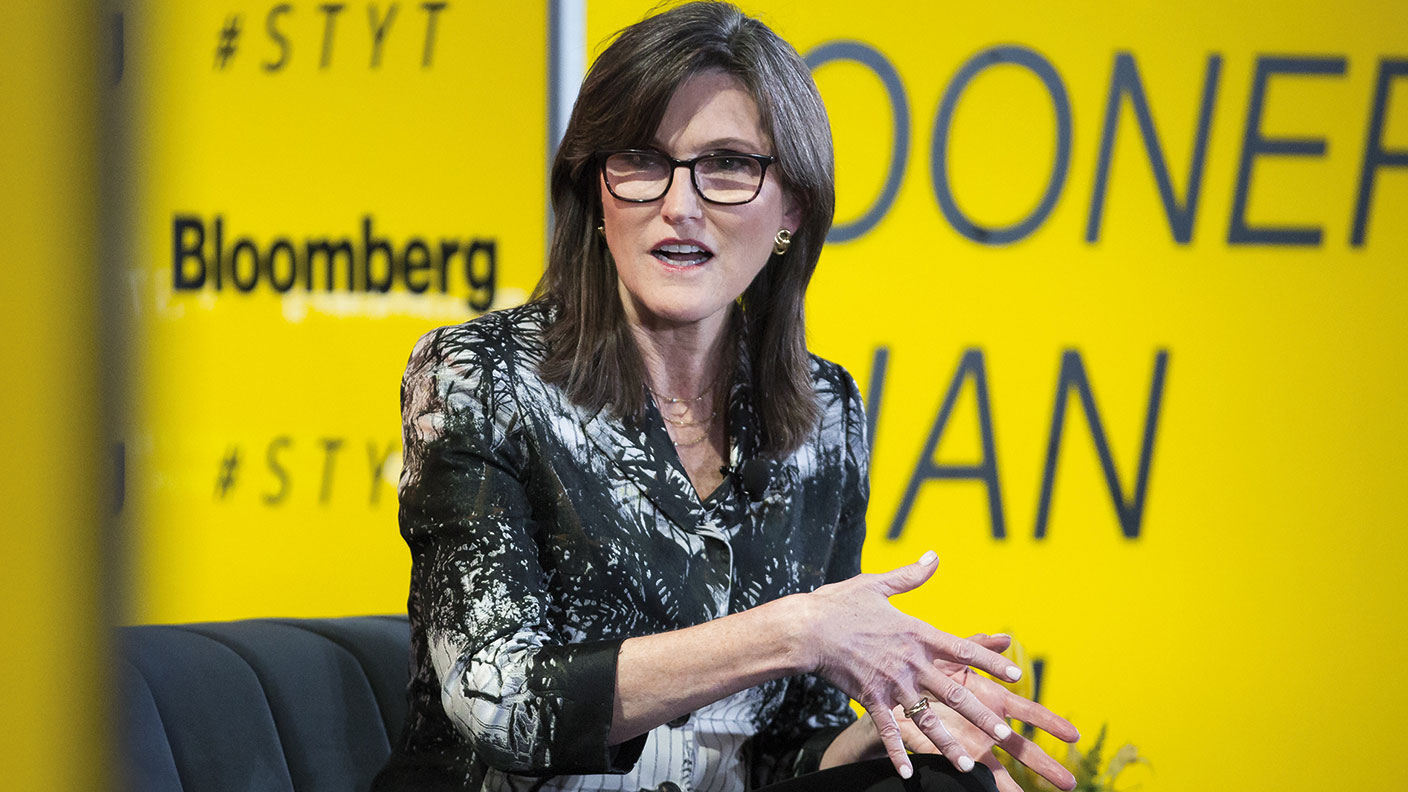Jim Chanos: the short-seller who called Enron
Jim Chanos has such a good long-term record betting on share price declines that he is known as “the catastrophe capitalist”. But he has struggled since the financial crisis. Jane Lewis reports.

Get the latest financial news, insights and expert analysis from our award-winning MoneyWeek team, to help you understand what really matters when it comes to your finances.
You are now subscribed
Your newsletter sign-up was successful
Want to add more newsletters?

Twice daily
MoneyWeek
Get the latest financial news, insights and expert analysis from our award-winning MoneyWeek team, to help you understand what really matters when it comes to your finances.

Four times a week
Look After My Bills
Sign up to our free money-saving newsletter, filled with the latest news and expert advice to help you find the best tips and deals for managing your bills. Start saving today!
Celebrated Wall Street short-seller Jim Chanos could hardly conceal his glee when he heard that Elon Musk had once again "called a hero of the Thai cave rescue a paedophile", says Institutional Investor. Chanos began shorting the car-maker in 2015, "and has been nursing losses ever since".
With nearly $10bn wagered against the stock, the 61-year-old founder of Kynikos Associates (the name means "cynic" in Greek) is hardly the only one betting against Tesla. But Chanos is "already a legend", having secured his place in Wall Street history nearly 20 years ago by predicting and profiting handsomely from the 2001 demise of Enron.
A 30-year success story
His record is impressive. Kynikos is the only predominantly short-selling hedge fund of any size, and the only one that has stayed in business since 1985. However, Chanos's shorts "have been bleeding red ink" ever since the financial crisis. Since peaking at $7bn in 2008, his funds have lost almost three-quarters of their assets. "It has been one giant short-squeeze market," moans the financier once dubbed "the catastrophe capitalist".
MoneyWeek
Subscribe to MoneyWeek today and get your first six magazine issues absolutely FREE

Sign up to Money Morning
Don't miss the latest investment and personal finances news, market analysis, plus money-saving tips with our free twice-daily newsletter
Don't miss the latest investment and personal finances news, market analysis, plus money-saving tips with our free twice-daily newsletter
Money is one thing, but there's "more than a little of the crusader" in Chanos, according to peers, who credit his "encyclopaedic" knowledge of companies he has a side gig teaching market history at his alma mater, Yale for the exposure of a roster of frauds.
As a 2013 profile in Yale Alumni magazine noted, Chanos is not just "the guy who called Enron". His list of targets over 30 years stretches from Michael Milken's junk bond empire to Dennis Kozlowski's Tyco and Bernie Ebbers' WorldCom taking in subprime-mortgage lenders and homebuilders along the way. Some, who accuse Chanos and his like of destroying American companies for their own financial gain, view him as almost an "agent of Satan". But he's a far "more complex character" than the stereotypical labels attached to him might suggest.
His first coup
Born in Milwaukee into a Greek immigrant family with a chain of dry-cleaning shops, Chanos paid his way through college with a summer job as a union steel worker. He ended up at Yale, where he majored in economics and political science and started trading options. Like many short-sellers, he got into the game almost by accident. As an analyst at Gilford Securities in 1982, he was asked to analyse Baldwin-United "a piano company that had transformed itself, by a series of acquisitions, into an insurance giant and Wall Street darling".
Realising that the company's financials were a sham, Chanos revealed it, hastening Baldwin into what was then the biggest corporate bankruptcy on record. Chanos famously repeated the trick at Enron after noticing similarities with Baldwin-United's accounts.
This year, Chanos's guns are trained on the medical and restaurant sectors, as well as Tesla, says CNBC. But he thinks there's a far bigger reckoning coming. We're at what he calls "the fraud part of the cycle". He predicts a wave of malfeasance, with Silicon Valley playing a big role.
We live in "a post-truth environment" which has translated into a mood in which investors are willing to suspend disbelief, he told Institutional Investor. "Crazy companies are trading at really crazy valuations now, on top of their bad businesses. That's kind of exciting."
Get the latest financial news, insights and expert analysis from our award-winning MoneyWeek team, to help you understand what really matters when it comes to your finances.
Jane writes profiles for MoneyWeek and is city editor of The Week. A former British Society of Magazine Editors (BSME) editor of the year, she cut her teeth in journalism editing The Daily Telegraph’s Letters page and writing gossip for the London Evening Standard – while contributing to a kaleidoscopic range of business magazines including Personnel Today, Edge, Microscope, Computing, PC Business World, and Business & Finance.
-
 How a ‘great view’ from your home can boost its value by 35%
How a ‘great view’ from your home can boost its value by 35%A house that comes with a picturesque backdrop could add tens of thousands of pounds to its asking price – but how does each region compare?
-
 What is a care fees annuity and how much does it cost?
What is a care fees annuity and how much does it cost?How we will be cared for in our later years – and how much we are willing to pay for it – are conversations best had as early as possible. One option to cover the cost is a care fees annuity. We look at the pros and cons.
-
 The Stella Show is still on the road – can Stella Li keep it that way?
The Stella Show is still on the road – can Stella Li keep it that way?Stella Li is the globe-trotting ambassador for Chinese electric-car company BYD, which has grown into a world leader. Can she keep the motor running?
-
 What is Elon Musk's net worth?
What is Elon Musk's net worth?Elon Musk is the richest person in the world and close to becoming the first-ever trillionaire. How did the Tesla and SpaceX founder make his fortune?
-
 Austin Russell: the university drop-out who made a billion dollars
Austin Russell: the university drop-out who made a billion dollarsProfiles Halfway through his first year as a physics student, Austin Russell won a $100,000 prize designed to encourage young entrepreneurs. A decade later, he is the world’s youngest billionaire. Jane Lewis reports
-
 Cathie Wood: the superstar investor shooting for the stars
Cathie Wood: the superstar investor shooting for the starsProfiles Cathie Wood has quietly built a reputation for picking the unloved and misunderstood stocks that go on to thrive. She has just launched a new ETF that seeks profits in space exploration.
-
 Elon Musk: the space oddity seeking world domination
Elon Musk: the space oddity seeking world dominationProfiles Elon Musk, the electric-car and space-travel pioneer who wants to move to Mars is now the world’s richest man. If he seems delusional, that’s all part of the plan.